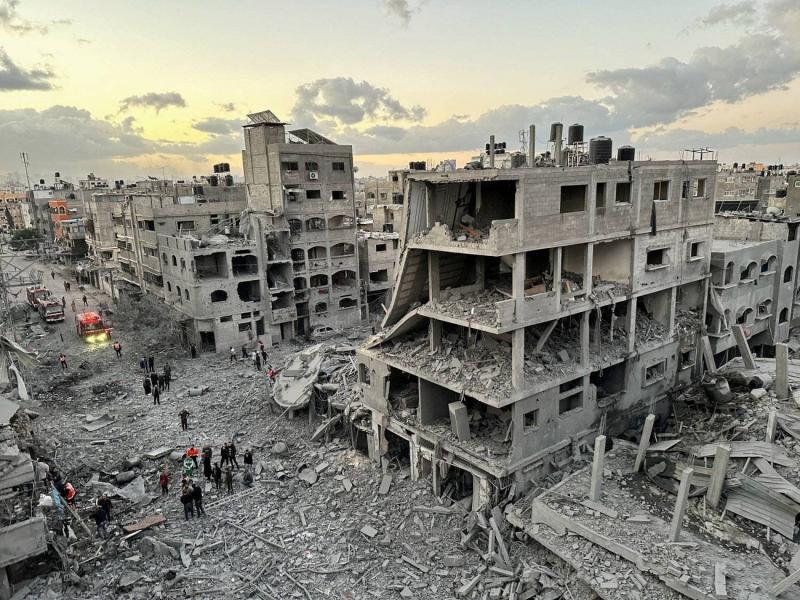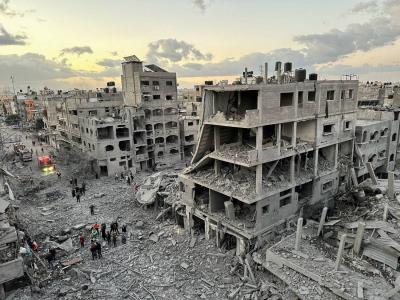In wars, it is impossible to separate the levels of planning, ranging from strategic to operational, down to the tactical level. These levels are merely a conceptual framework prepared before the war begins, forming a roadmap for execution. In this roadmap, the tactical level, implemented effectively, is the actual field for executing ideas. Here, ideas, plans, and readiness are tested and measured.
The geopolitical level holds a higher rank than the strategic level. It sketches the geopolitical premises of a nation, where leaders consider limitations, capabilities, the immediate environment, the permanent enemy, the temporary enemy, and both permanent and temporary allies. History and geography play significant roles in defining these premises, but the geographical proximity among great powers often leads to contradictions and intersections between these premises, which could result in conflict - Russia and Europe, for instance.
### Historical Examples
Napoleon ascended the French throne and sought to contend with Britain, adopting a strategy of indirect confrontation. Unable to match the British fleet at sea, why not occupy all of continental Europe, preventing this fleet from docking? Europe united against Napoleon, leading to his downfall. Spain waged an asymmetrical war against him, inventing the principle of "Guerilla" warfare, translating to small wars. France still suffers from a grandeur complex. Is Napoleon considered a thinker and strategic leader, or do results determine the evaluation? Notably, Napoleon was one of the most significant military thinkers on both the operational and tactical levels, but his biggest mistake was overextending his capabilities.
Hitler aimed to establish the Third Reich, reminiscent of the First Reich with the Holy Roman Empire and the Second Reich with Bismarck. He altered the situation in Europe, expanding east, west, and north, occupying Paris, the capital of France, but fell soon after by reaching his limits. He sought to create a universal empire akin to Britain's geopolitical premise. The Third Reich collapsed only a few years later (1939-1945), bringing disasters to Germany. Is Hitler deemed a leader and strategic thinker, or is the judgment based on outcomes?
### Strategy and Tactics in Gaza
The worst strategic planning relies on the success of another's strategy, even if they are allies. When the two strategies contradict, the weaker party in the power equation will inevitably pay the price.
The success of Hamas' strategy is linked to the ever-changing dynamics of Iran's strategy in the region, framed as the "Unity of Fronts" strategy. What is strategic for Iran in this equation is a matter of life and death for Hamas; thus, Hamas serves as a "sacrificial pawn" or gambit pawn in Iran's grand strategy, especially as Hezbollah in Lebanon is considered the crowning jewel and fundamental weight of Iran's regional project. The gambit pawn is typically used as a sacrifice to enhance positioning in the conflict.
Conversely, the success of Israel's strategy in the region, particularly against Iran, depends on the United States' strategy and objectives in the area. What is geopolitical for Israel is categorized at the strategic level for the U.S. America views Gaza, along with the Iranian crisis, within the larger picture and the conflict with Russia and China, reflecting how alliances among these countries will affect the U.S. global project.
### Gaza vs. The Support Front
Hezbollah has linked the Lebanon front with what is happening in Gaza, under the title "Support Front." Analyzing this perspective from a strategic and military viewpoint may yield the following conclusions:
- The Lebanon front aims to occupy the Israeli army's attention and stabilize some of its military units on this front.
- This front has not influenced the destructive war in Gaza either tactically or operationally, as the Gaza Strip has been over 80% destroyed. The "Support Front" has failed to alleviate pressure on the Gaza front.
- Hamas is currently engaged in an existential war in the Gaza Strip. In contrast, Hezbollah is involved in a war with two significant aspects:
- On the Lebanese front, it seeks to affirm itself as the decisive authority on all issues, aiming to create a deterrent system to prevent Israel from repeating the experience of the July 2006 war. The party is testing its military capabilities in live combat, not through simulations, and experimenting with weapons supplied by Iran, seeking to avoid an Israeli war against it as this is a matter of life or death.
- On a regional level, Hezbollah provides services of geopolitical value to its original patron.
Experts say all wars will eventually end. War is not a continuous act in time and space, as the Prussian thinker Carl von Clausewitz states. When the war ceases, its outcomes must be translated politically. Let’s assume for argument's sake that the war in Gaza stopped today; who would sit at the negotiating table? How, and who would translate the battlefield outcome into the political and geopolitical levels? What role does Hamas play in this game? Can the losses of the sector in material and human terms be compensated?




